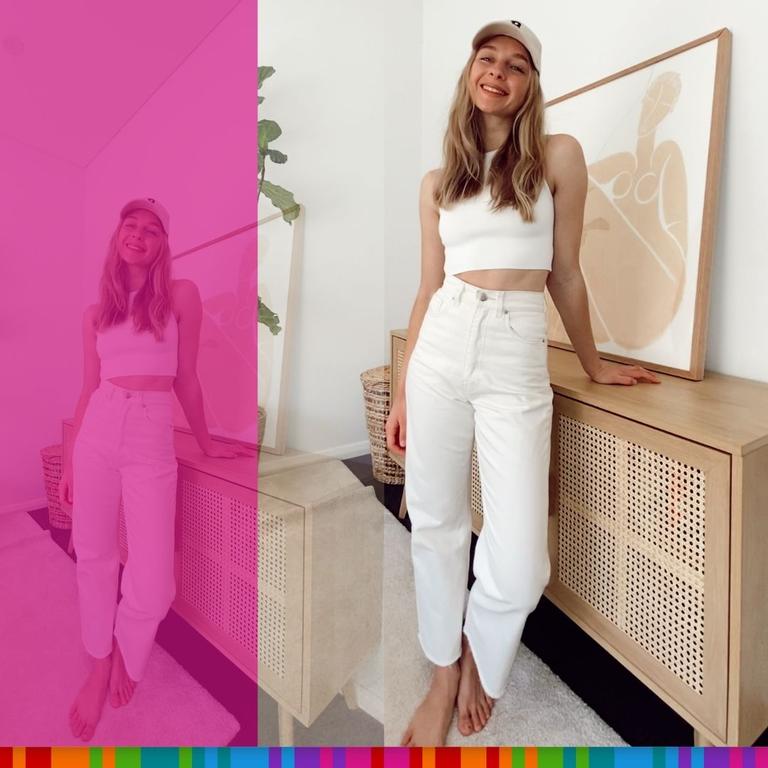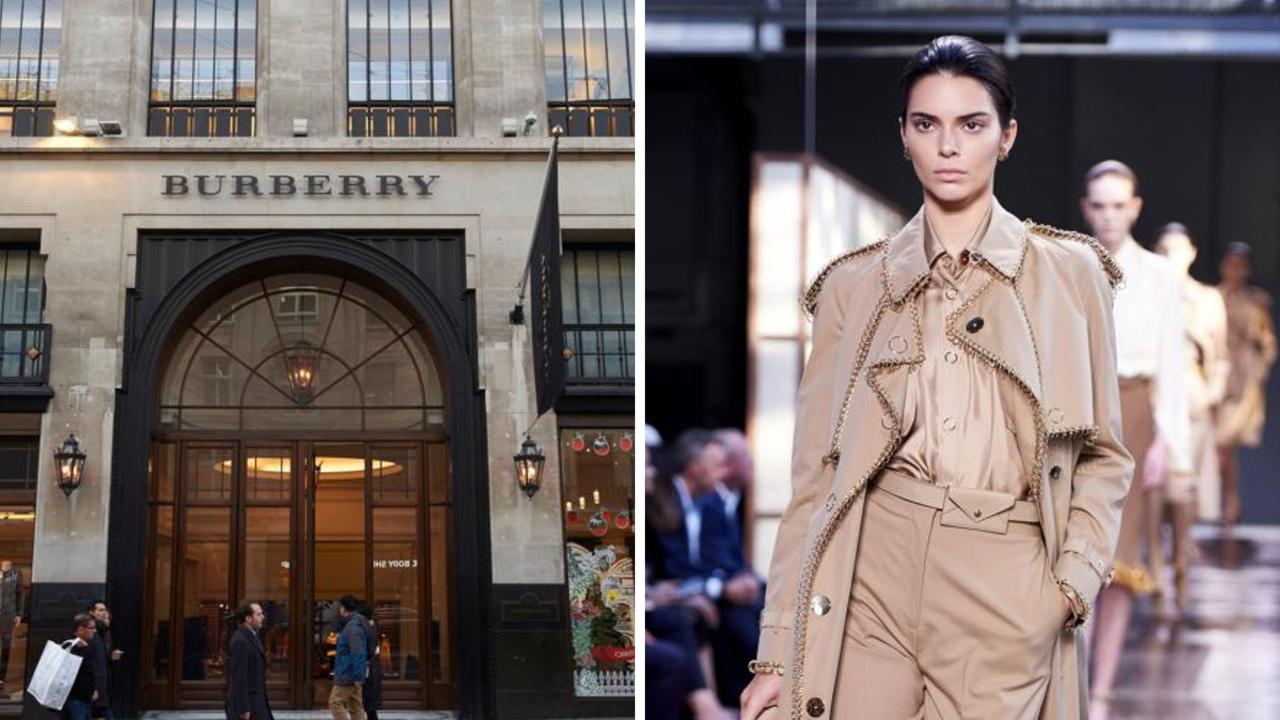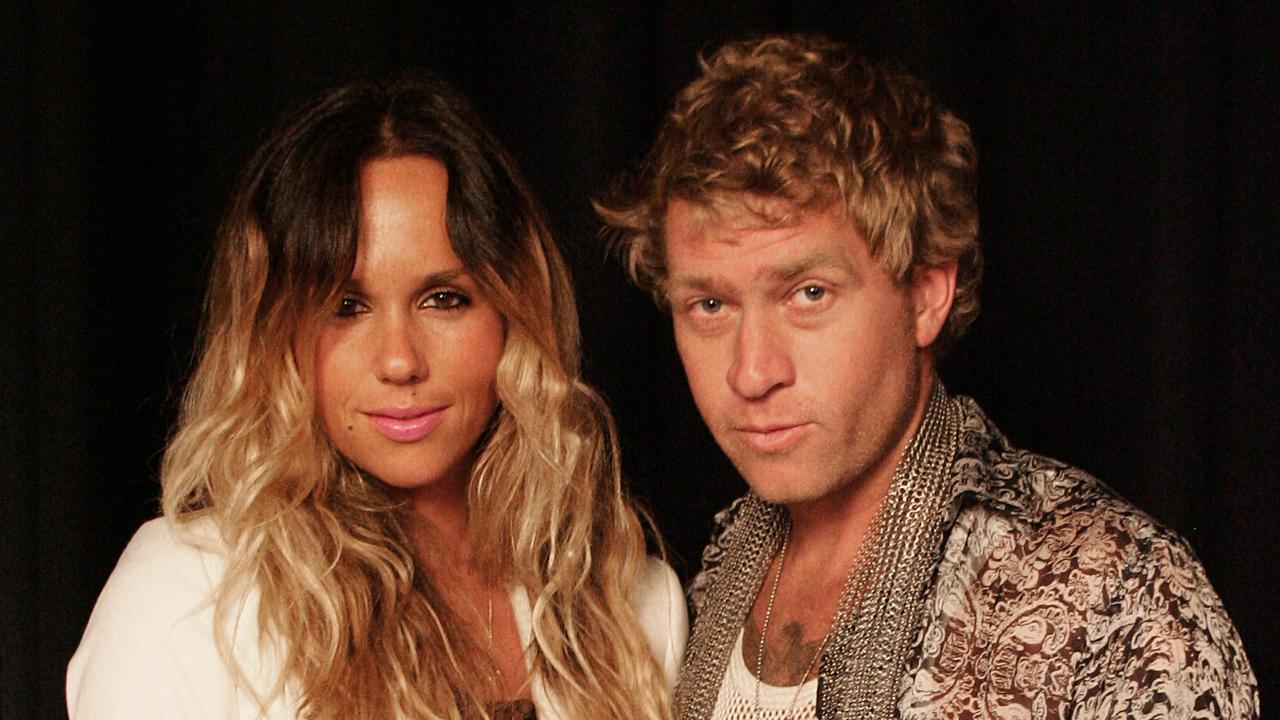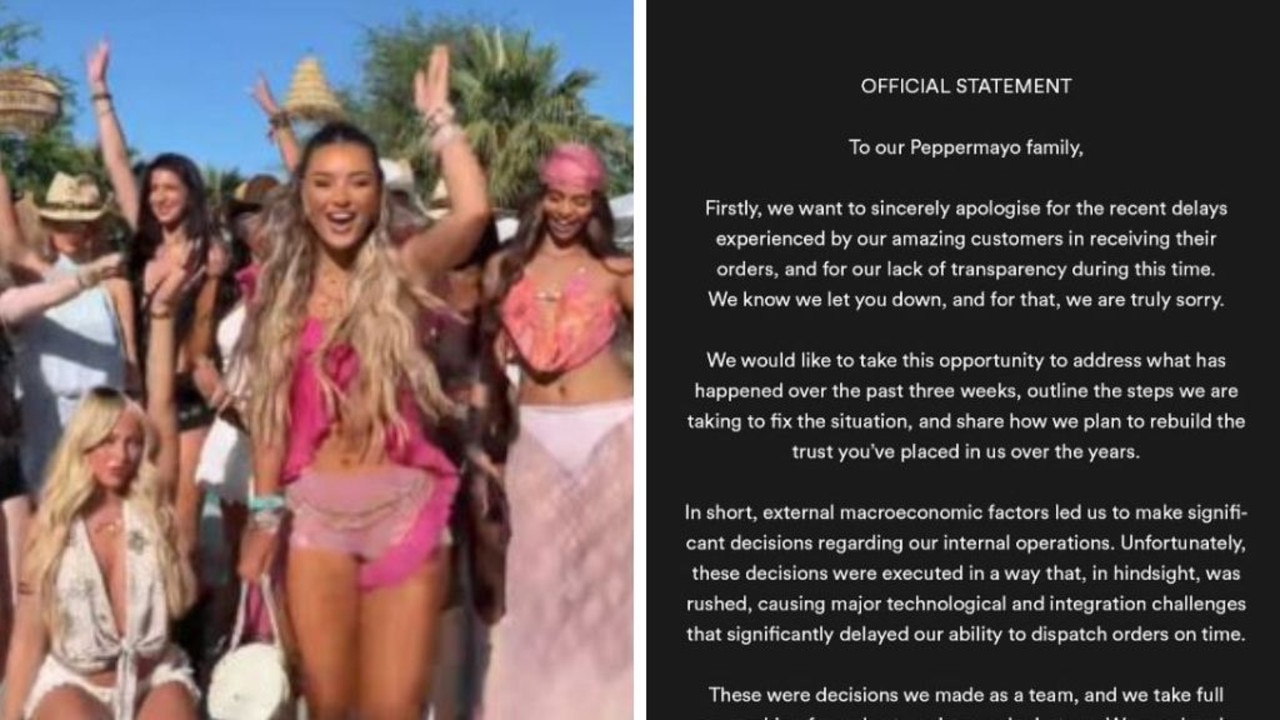Meet the Aussie labels who rejected traditional sizing names
Australia has been labelled “fatphobic”, but there are a few local brands fighting to change that, one sizing label at a time.
Most of us grew up with certain images of women in media and on the movie screens that told us exactly how we had to look to be “beautiful” – skinny.
Now, the body positivity movement is taking hold, and many of us have (and are still trying to) unlearn everything we were told about what we had to look like to be beautiful.
Of course, progress is slow – apparently, especially in Australia.
Last week, Aussie influencer and model, Imogen Ivy, took to Instagram to call out the country’s fashion brands for being “fatphobic” and not size inclusive.
She compared Australia to other places around the world, like the USA, EU and UK (where she now resides).
“Australia is not size inclusive,” she said in a video that was part of the post.
“Which trickles down into a fatphobic society, which trickles down into a fatphobic dating culture, which trickles down into bikini culture.”
Now, some in Australia are taking that sentiment even further, and choosing to change the way we label sizes.
Bella Sen, 26, created her own denim label after she became frustrated by never being able to find a pair of jeans that fit.
Ms Sen told news.com.au that even though she is slim, women’s denim in Australia just isn’t made for curves, let alone catering to all sizes.
“I started it a few years ago because I could honestly never find jeans that fit, because I have a small waist compared to my hip, butt and thighs,” she explained.
“It would always make me feel shi*ty because it felt like it was me and my body that was the issue.
“So I created Peachay as a side hustle, because I wanted to create a brand for women who had the same problem as me.”

The philosophy at Peachay is to create clothing fits that are tailored to different women’s body shapes, rather than expecting women to tailer their bodies for the clothes. To Ms Sen, traditional sizing is restrictive, reductive and needs to be changed.
“It didn’t really make sense for Peachay to use standard sizing,” she said. “If your size isn’t in a store, or if your label is a ‘large’ it can make people feel bad, so I wanted to create sizes that made them feel confident. Not to mention normal sizes weren’t fitting us anyway.”
“I didn’t look at sizing charts at all, I just started with my own body shape, then my friends who have juicier hips, butts and thighs.”
“Peachay started as a small side hustle and we’re looking to expand our range using feedback from customers, but I just started by using us. Now a lot of women seem to be fitting into them.”
“I don’t even call it sizing, it’s more like finding your fit – so you don’t need to find your size, you need to find your flower.
“I thought I may as well just make the size names flowers, because it seemed like a much nicer experience and I got so much positive feedback. Flowers are beautiful and they can’t be mistaken for anything else.”
Peachay may have taken their sizing to a whole new level, but they weren’t the first Aussie label to take issue with traditional sizing terms.
Aussie activewear brand Duke The Label also ditched “large” sizes from their size chart, opting for a range that went from Small to XXX Curvy.
“So many activewear brands do not cater to the reality of Australian women’s bodies,” said Duke The Label founder, Rhiannon Duke.
Ms Duke started her label in 2018 after receiving a tearful phone call from her sister who, after having her second baby, was turned away from a store by the staff who explained the garment she was trying on was the biggest size available.
“Our bodies shouldn’t have to fit into society’s preconceived notions of what a ‘fitness physique’ is,” she said. “Instead, we should all feel empowered to get active, no matter what size we are. The description found on a clothing tag should never size-shame you nor make you feel bad about yourself.”
More Coverage
So while Australia is being slammed for falling behind the curve (sorry) with their inclusivity, is it all bad news?
“People are becoming more aware of their own body positivity and being kinder to themselves,” suggested Ms Sen.
“Brands though are slower to catch up, but I see a lot trying to be more inclusive and add more size lines to their range, which is good. So I feel like it’s going in a good direction.”




